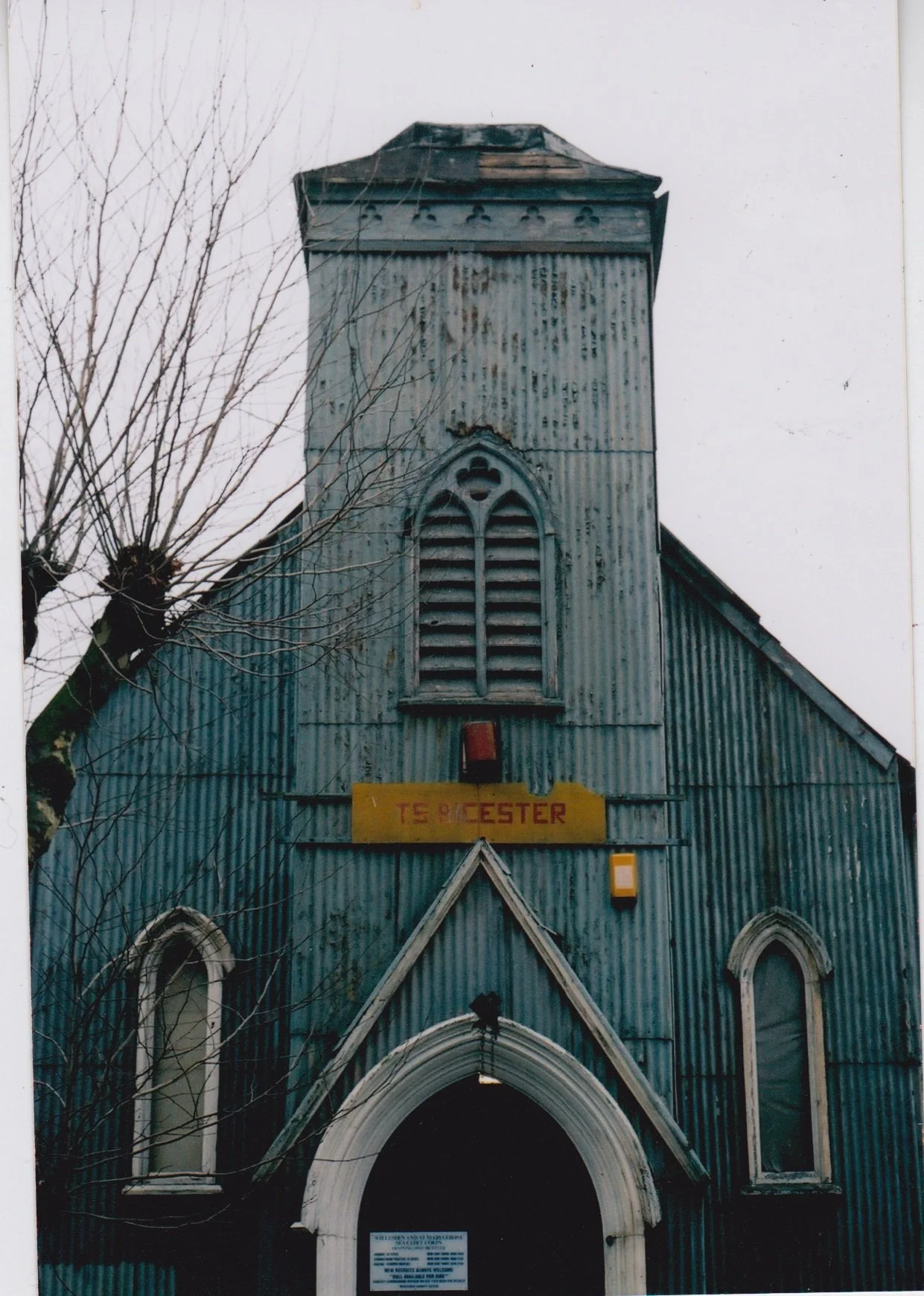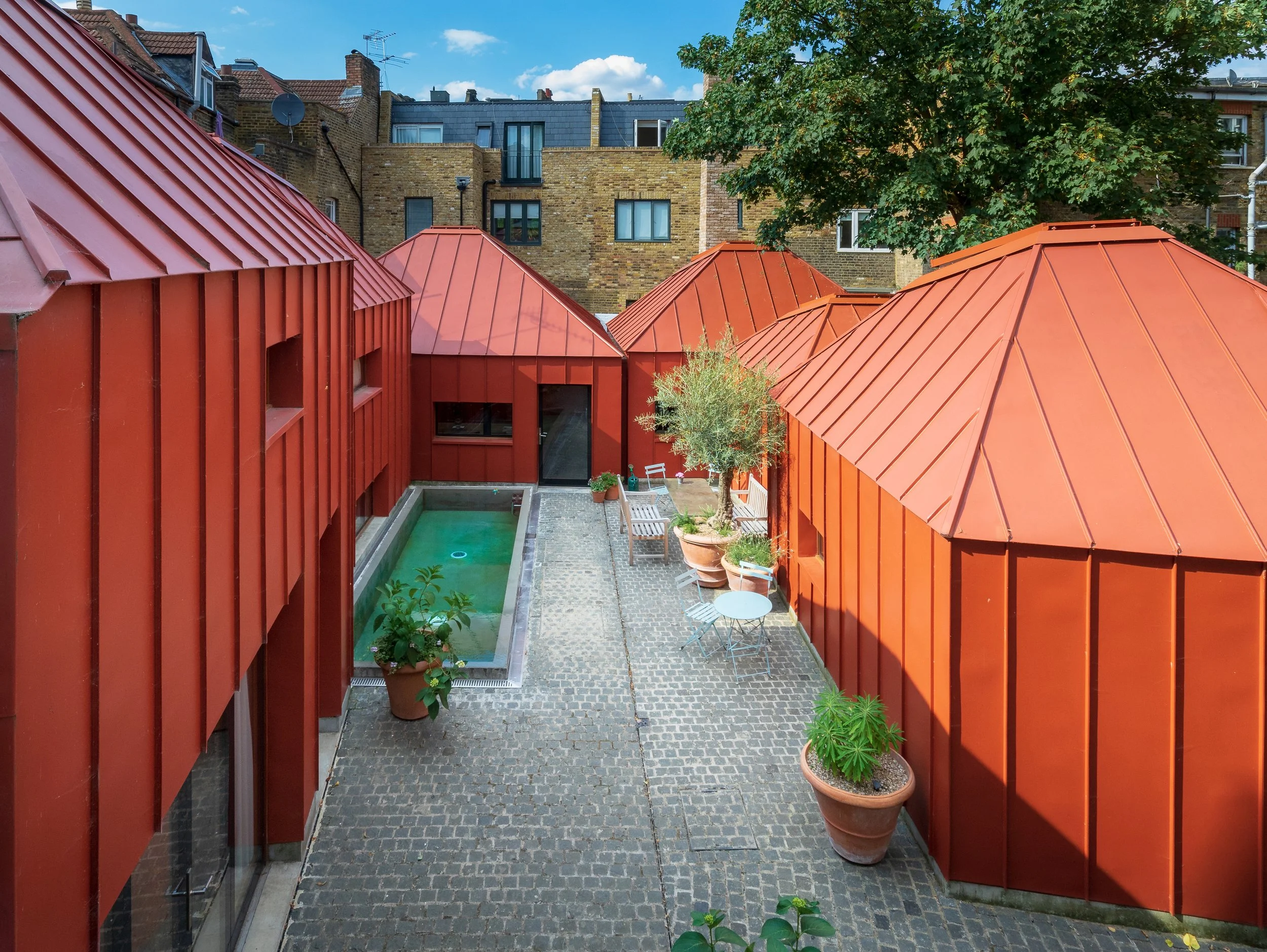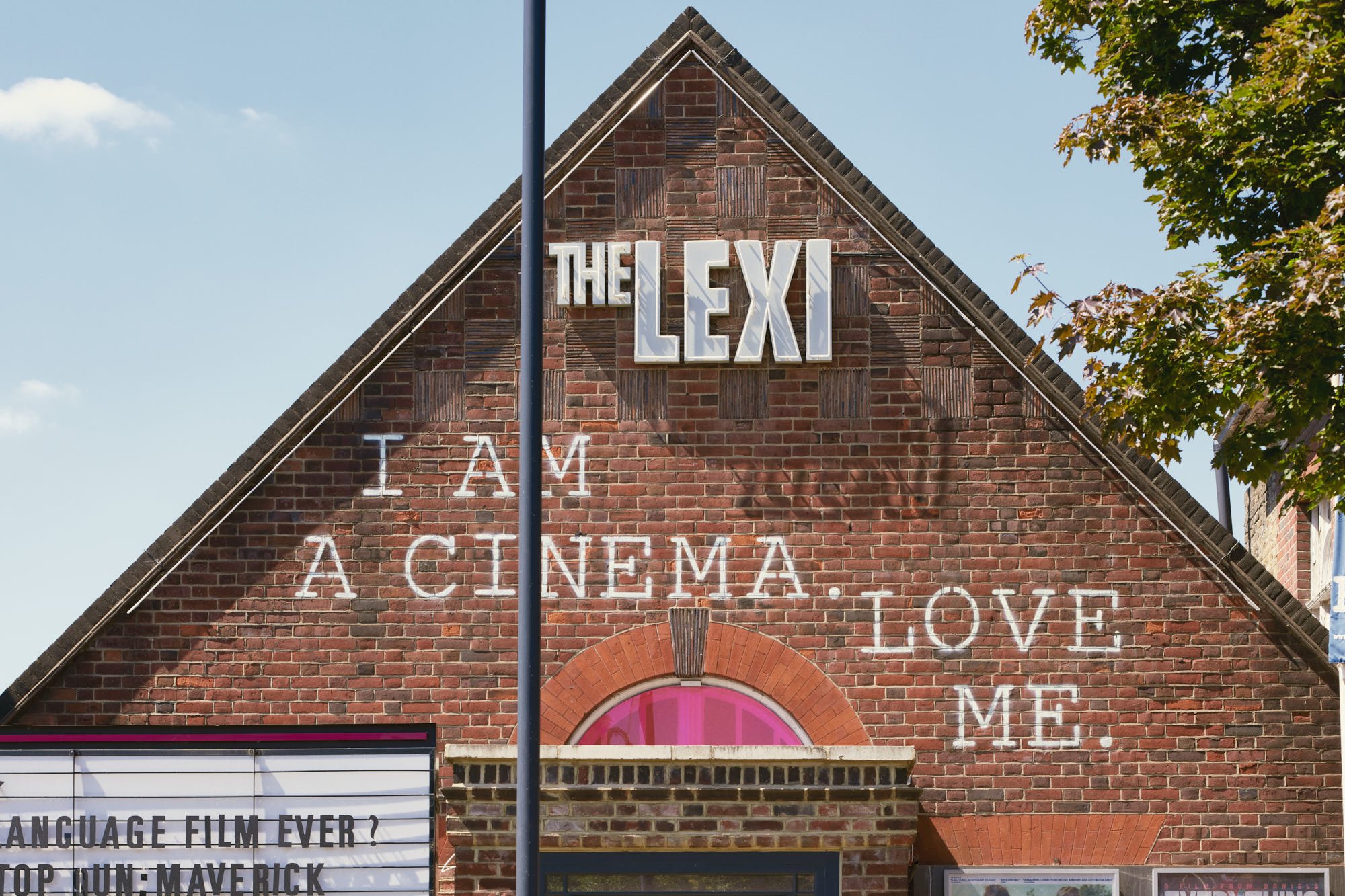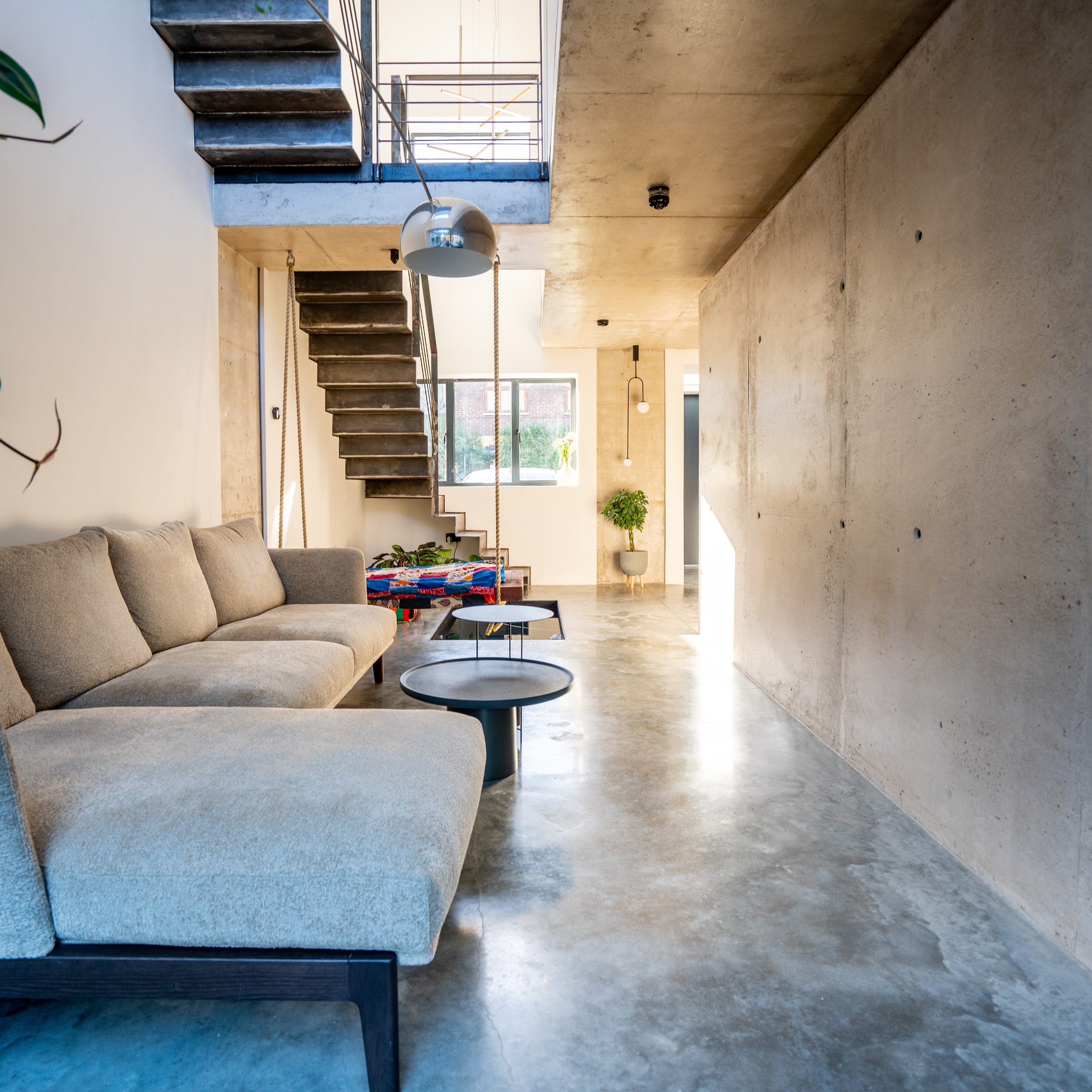City Curator’s Collection: HOME: Simple Faces, Complex Minds
‘HOME: Simple Faces, Complex Minds’ is part of the City Curator’s programme, which aims to amplify the voice of young people within the Open House Festival 2023.
The project brings together 15 young people who will work and learn as festival curators, deciding on themes and areas of London they are interested in and want to celebrate.
The curator’s
Sam Elbahja, a Moroccan-Thai poet, artist and writer rooted in East London, Tower Hamlets, she is currently pursuing her studies in Architecture at the University of Cambridge. Driven by her heritage and the intricacies of her socio-economic background, she strives to amplify the voices of marginalised communities.
Hagi Sivathasan is an aspiring architect entering his 3rd year of the Engineering and Architectural Design course at the Bartlett School of Architecture (UCL). With strong intellectual ambition and values of access and inclusivity, he strives to transcend boundaries of what is possible, to address our future of uncertainty.
Bhavini Ghedia, a vibrant East Londoner is fueled by a passion for both inclusion and art. As a dynamic creative director, energetic dancer, and dedicated youth and SEND worker, she strives to shape futures, celebrate diversity and break barriers through art, movement and mentorship.
Archie Owens is an aspiring project manager and architectural student studying his A levels at London Design and Engineering University Technical College. Living in the middle of nowhere, but travelling absolutely everywhere. He thrives on creativity and innovation, constantly seeking to gage with the various forms of the built environment.
Joel Muhangi is a Ugandan final year Engineering and Architectural Design student at the Bartlett School of Architecture. He takes pride in collaborating with communities primarily focusing on enhancing locals’ well-being.
Collection
Our collection is centred around ‘home’; its different forms, hidden in plain sight and the journey we take through it.
I wake up in a place dipped in colour,
tucked between the oranges and reds
you can get lost in the beauty of it all
the same way I get lost in pages of my book
and if you judged my outside,
you would never believe I have such a loud inside
The day is long
And comfort doesn’t only just lie in my library of colour
but it sits in the pews, surrounded by tin
so we cup our hands in prayer
rocking back and forth,
like we are undulating through the seawater
to commemorate our cadet brothers,
that’s why we merge faith with brotherhood
because only God can help them now
But the day is long, so I pick up a friend
And she lives in a dot of speckled red
surrounded by the grey normalcy of life,
my friend is quite private. And so is her house.
Hidden, behind closed wooden doors.
But as soon as you step into the threshold of our neighbour
personalities seem to ooze out of the windows
The day is still long
So we stumble into the living room library,
our home away from home
an opportunity for me to get lost in the pages again
and I like that, I like how this place feels different
the community, culture and care painted on every surface
and graffitied on every wall
But I am kind of hungry now
So we travel on the copper tubes
to get to the yellow house,
I step inside someone’s prefrontal cortex
and try to navigate around their cerebellum
everywhere I look I feel like I decoding a puzzling
trying to solve the riddle of:
‘Until lemons are sweet’
We eat in the yellow kitchen
and I am feeling slightly frightened by all this colour
So we take a journey into the darkness
It’s rough. Like rocks at the bottom of the seabed
but instead, these rocks seem to arch around me,
and there is a certain comfort I feel the darkness,
the idea that I cannot be seen
It makes me question my importance
It makes me question my ikigai - my purpose
so I take a deep breath, and I swing slowly
but I want to be raw and exposed
like the steel and concrete,
because they don’t apologise for being so bold
And I have one friend that is so unapologetic,
She’s that girl, it’s Lexi.
she’s a unique friend, but the type you can rely on.
she is our safe haven, our community calling,
and our girl sandwiched between two neighbours,
so we call her home
But it’s been a long day
So instead of getting lost in my books to relax
I watch the rain fall.
I listen to it’s pitter-patter
behind a screen of glass where i feel safe
and I watch the ripples grow, and grow and grow
to the point, I feel like it has curved over the edge into my realm
But the moon is reaching its apex,
arching over for a yawn
And I am starting to doze off
In my cabin in the woods based in Clapham
the carved concrete has changed the level of the floor
so I begin to sink into bed, into my buried room, in my upside-down house
And I remember, just before I married my inner eyelids
the beauty I saw in my home today.
Jermaine Gallacher, a notable interior designer, product designer, and design dealer, known for his unconventional and thought-provoking style, has transformed his residence into a passing exhibition of his artistic ideals. Over the course of 12 years within this space, he has truly lived, filling every corner with personal decor. Gallacher's dwelling, within the 1886 Douglas Flats built as part of a slum clearance initiative, showcases his hands-on and deeply emotional approach to interior design.
His artistic background allowed him to craft elements that resonated with his sense of home. Rather than making structural alterations, a challenge within a rented space constrained by regulations, Gallacher channelled his creativity into artwork that vividly expressed a sense of belonging. Notable among his creations are the distinctive zigzag tables in his hallways, a statement to what Jermaine Gallacher calls home.
2. Tin Tabernacle
Below the decks, behind the old corrugated iron chapel, lies a naval memorial honouring and resembling the decommissioned ship, The HMS Bicester. Built in 1863 Kilburn, as St James Church, its iron structure became home to shifting religious identities from Episcopal to Congregational, each reflecting the evolving community connections. Following WWII, it passed onto the Willesden Sea Cadets, who oversaw its conversion into a naval memorial hall. The transformation from a spiritual home to a nautical haven, resonates with the diverse meanings of belonging. It features authentic details from the Oerlikon 20mm Cannon to a Ship’s chapel contributed from the set of the 1964 film “Becket”. Currently under the Paddington’s Churches Housing Association Ltd, it thrives as a space for gatherings - a vibrant hub of communal events. The Tin Tabernacle became a vessel for community connections, shared stories, and a testament to the adaptability that defines what we call ‘home’.
3. Tin House
Hidden from the naked eye behind the confines of an arched wooden gate, this private dwelling humbly sits in the hustle and bustle of a Victorian neighbourhood. Overlooked by prying eyes on all four sides, this tranquil abode is an exciting and unusual piece of contemporary urban architecture that pays homage to a Mediterranean village. The sense of home is showcased by the connectedness of the buildings within the space. Also the architect has chosen the geometry, breaking down individual spaces into harsh fragments dispersed on irregular site boundaries. It creates an ensemble which overlooks a soft quaint oasis. Built in 2018, dressed in a warm orange tin, for its own sense of grandeur it serenades its neighbours playing the ‘flute for living’, as the water boils on the wood burning stove.
4. Lexi Cinema
Following the 2006 tornado devastation, the community band together to create a space that all collectively call home, and as a result Lexi Cinema was born. With deep roots to the sustainability institute in South Africa, LEXI Cinema is volunteer run with 100% of the profits going to charity. LEXI Cinema, goes above and beyond, becoming an expression of the local diaspora, offering educational screenings for all the community’s segments. A space for different initiatives, Lexi brings the comfort of home through its tailored programs, cultural events and sustainability efforts which all centre around the community bringing a sense of inclusivity and fostering the community’s future.
5. Havant House
Hop on the train to Walthamstow and step into Natasha Landers' enchanting home, where she goes by the alias Until the Lemons are Sweet. With an artistic touch and a keen eye, embracing its authentic Victorian elements, she has revitalised her mid-terrace house. Bearing the embossed with names of their makers as a reminder to their origins, she fashioned shutters from reclaimed builders’ scaffolding boards.
Natasha's ingenuity is evident as she indigenously weaves London's essence throughout her home. The kitchen ceiling features copper pipes that ingeniously mimic the iconic London tube map, a nod to the city's spirit. Now let’s walk down the steps to the cloakroom, where we discover a repurposed cigar press transformed into captivating wooden wall art. The original typography remains on the shelf, offering a glimpse into its past life. Natasha possesses the unique ability to breathe new life into the old, an endeavour to make her sour house a sweet home.
6. Good Growth
Wedged in the heart of the community between home and school, Angel Yard is a new piece of life to the local area. Once disused garages, now a thriving hub for growth and development, up and coming businesses have the chance to thrive and succeed like never before. It is currently under the management of Launchit, a charitable organisation dedicated to fostering young enterprise and community development. With 35 affordable workspaces, Angel Yard has become a beacon of hope for aspiring entrepreneurs and local talent. It's not merely a physical space but an emotional gathering of a hopeful future, where dreams take shape, innovative ideas find their wings, and the community as a whole reaps the opportunities it offers. Angel Yard is proof that with determination and community support, neglected spaces can be reborn as vibrant centres of progress and promise: Home.
7. Pope’s Grotto
Tucked along the Thames in Twickenham, built in 1720, Alexander Pope’s Grotto was merely intended as a passage to connect his villa to his garden. Yet it became a mineral studded echo of his persona and passions, capturing his love for mineralogy, mining and classical mythology in its walls. The villa, demolished in 1808, underwent a series of redevelopment with the Grotto left untouched. In 1996, a Charitable Trust was made to preserve it, now home to Radnor House School. It embodies home, a sanctuary mirroring Pope's emotions, where he sought solace in the embrace of nature and the nymphs he imagined. It’s a retreat that intertwined his emotional ties with the physical space, a reminder that home is both a dwelling and a reflection of the heart.
8. Ikagi
Ikigai: the purpose. This is the philosophical idea that creates the home that is 12 Hickin Street Ikigai. Constructed in 2020, the building underwent a re-evaluation, removing partitions for exposed concrete and metal stairs, adding ample windows and a loft extension for natural light peak in. Designed by Vandana Goyal of Studio9, it embodies minimalism and tranquillity; the essence of ikigai.
The house combines Indian and local influences, notably the traditional swing and the pool, emphasising the ability of cultural integration possible. These personal touches add uniqueness, and elegant imperfections are celebrated through the raw concrete and incomplete metal railings in other words an emulation of Wabi-sabi. The home provides a serene and meaningful haven, an embodiment of their core values surrounding Ikigai.
9. Brut House
The story begins with a family who had outgrown their ex-council home; where Brut house was built in the story’s climax as a solution to stay with their friends and within the community. On ground level the open-plan lounge seemingly rests among the natural surroundings. Yet with limiting planning permissions, in the story’s rising climax, the family decided to follow down the path of a self-built project, digging into the ground to accommodate what was needed to fulfil their perspective of home. The floor to ceiling sliding glass doors enable the natural light to pierce through the wood clad concrete shell, where they lived happily ever after.
10. Sun Rain Rooms
Mimicking the natural elements, the Sun Rains Room built in 2017 was formed as a two storey extension to Grade II Listed Georgian Townhouse. Designed by Tonkin Liu in collaboration with local craftspeople, it carries an innovative roof carving the sun’s arc to allow rain to fall while people can sit protected behind curved glass doors, sweetening the gloomy day. The round, coffered skylights, echo raindrop ripples which bounce off the mirrored wall through a pipe that floods the patio to form a reflecting pool. The green roof reflects the pool and sunken light-well form a multi-layered urban garden, acting as a place to reflect, let-go and set forth on a new journey in a place without judgement: Home.
Event
HOME: Simple Faces, Complex Minds
Join the City Curator’s in celebrating the launch of their collection Friday 8 September for an afternoon of games, workshops and activities at Good Growth: Angel Yard, Edmonton.
Want to find out the opening times of the buildings and places in this collection, and the activities they are hosting? Click here!












